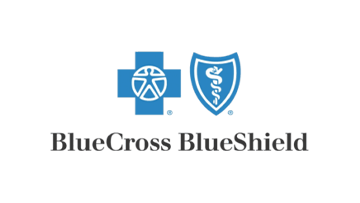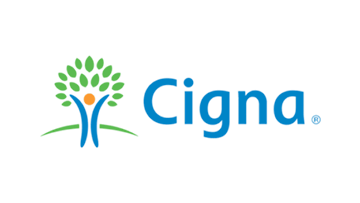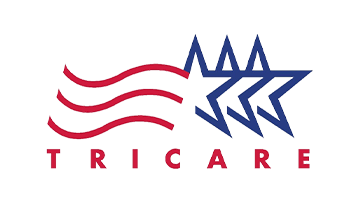Visit Us
Get Directions
Recovery doesn’t end when treatment does—it’s a journey that requires ongoing support, resilience, and connection. Benchmark Transitions offers a unique relapse prevention & aftercare program in San Bernardino, California, designed to provide individuals with the stability and resources they need after completing intensive treatment.
Relapse prevention isn’t just about avoiding setbacks; it’s about embracing a new way of life with confidence, equipped with proven strategies and a community that stands with you at every step. If you or a loved one is looking for support with relapse prevention or aftercare upon completing a higher level of treatment for substance abuse or mental health challenges, contact Benchmark Transitions today. Our continuum of care is designed to support you through each stage of recovery.
Recovery from mental health and substance use issues is an ongoing process that extends far beyond the completion of detox or residential treatment. Studies show that individuals who engage in structured aftercare programs are significantly more likely to maintain sobriety and reduce the risk of relapse.
Our aftercare services in San Bernardino provide essential support, helping clients reinforce their new coping strategies and stay connected to a recovery-oriented lifestyle. Benchmark Transitions understands the unique challenges after treatment and offers a personalized approach to aftercare to help each person navigate their next steps confidently.
Relapse prevention is a core part of the recovery journey that begins on day one. At Benchmark Transitions, relapse prevention is woven into every phase of treatment, offering clients a proactive path forward.
Our approach to continuing care combines evidence-based therapies and a supportive, compassionate environment, creating a foundation for lasting change. We help each client develop a unique skill set through individualized care plans to foster resilience and self-awareness. Here’s how we prepare individuals to navigate life beyond treatment:

CBT is one of the most effective tools for preventing relapse, focusing on identifying and reframing thought patterns that can lead to destructive behaviors. Clients learn to recognize triggers and challenge the thought processes that drive unhealthy actions. This practice allows individuals to gain experience redirecting negative thinking and replacing adverse thoughts with healthier, positive responses that support their long-term recovery.

Stress and cravings are inevitable, but learning to manage them effectively can make all the difference. Through mindfulness training, clients gain awareness of their physical and emotional responses to stress, allowing them to pause, reflect, and choose more constructive actions. Techniques like deep breathing, meditation, and body awareness exercises provide tools to stay grounded, reduce anxiety, and maintain focus on recovery. Stress management skills are essential for fostering a balanced, fulfilling life.

For many, emotional challenges lie at the heart of relapse. Learning to process and healthily respond to emotions is crucial to avoiding old patterns. At Benchmark Transitions, clients practice emotional regulation techniques that allow them to experience their feelings without feeling overwhelmed or resorting to unhealthy coping mechanisms. Techniques may include journaling, guided imagery, and relaxation exercises. By developing emotional regulation skills, individuals learn how to face difficult emotions head-on and find constructive outlets for expression.
Each client works closely with their treatment team to create a tailored relapse prevention plan that meets their unique needs and goals. This plan includes specific strategies for identifying early warning signs, avoiding high-risk situations, and maintaining accountability. Clients also outline personal goals, identify supportive networks, and establish coping strategies, giving them a clear roadmap for handling real-world challenges as they arise.

Sustainable recovery is built on a foundation of healthy habits. During treatment, clients establish daily routines that include exercise, nutrition, self-care, and other positive practices. These routines are essential for creating a sense of stability and purpose in daily life, helping clients stay focused and grounded. Our aftercare and relapse prevention programs encourage clients to maintain and adapt these routines, giving them a reliable framework for their new lifestyle.

A strong support network is one of the most powerful tools for relapse prevention. Through our program, clients connect with family members, friends, and peer groups that provide encouragement, accountability, and understanding. We emphasize the importance of open communication, boundary setting, and building trust with loved ones, helping clients strengthen these connections. Our group therapy sessions, outpatient curriculum, and alumni events foster continued peer support for those in aftercare, creating a sense of community long after completion of traditional treatment.
If you or a loved one is struggling with substance use or mental health issues, contact Benchmark Transitions today to learn more about how our aftercare and relapse prevention programs in San Bernardino can support your recovery.
As individuals transition from residential treatment to independent life, having a structured and supportive environment can make all the difference. Benchmark Transitions offers transitional and sober living in San Bernardino, designed to bridge the gap between intensive treatment and everyday independence. Our sober living homes provide a safe, supportive community where clients can apply the skills they’ve gained while still accessing essential resources and assistance. These homes provide a stable environment that promotes growth, confidence, and accountability. Here’s what our transitional program offers:
Our transitional homes provide a welcoming, structured setting promoting comfort and recovery. Each residence has essential amenities, including comfortable living spaces, fully-equipped kitchens, and shared common areas where residents can relax and connect. Semi-private rooms offer a peaceful retreat, while outdoor spaces, including pools in some homes, allow for reflection in a serene environment. Residents are encouraged to establish routines and take responsibility for daily tasks, building habits reinforcing a healthy, balanced lifestyle.
Our transitional living program includes access to on-site resources and support that enhance the recovery experience. Clients can participate in regular therapeutic services, support meetings, and wellness activities such as meditation sessions and workshops. These resources are designed to reinforce the principles learned during treatment and support clients as they navigate life in recovery. Additionally, our facilities include outdoor spaces where clients can enjoy fresh air, connect with nature, interact with animals, and find moments of quiet reflection.
A central focus of our transitional program is helping clients build independence. Individuals are encouraged to take on personal responsibilities that prepare them for life beyond treatment, such as managing daily schedules, budgeting finances, preparing meals, and maintaining employment. Through our team’s hands-on support and peer encouragement, clients develop essential life skills that foster self-sufficiency and resilience. These experiences provide a structured yet empowering environment, helping each gain the confidence to face real-world challenges while remaining committed to recovery.
View Our PropertiesThe alumni program at Benchmark Transitions is a cornerstone of long-term support, providing former clients with an extended community and resources to sustain their recovery. Staying connected with a network of individuals who understand the unique challenges of post-treatment life can be invaluable. Here’s how our alumni program in San Bernardino helps individuals stay engaged and grow in their recovery:
Accountability is essential in long-term recovery, and our alumni program offers regular check-ins with our dedicated team. These scheduled meetings allow alumni to share their progress, discuss challenges, and address personal concerns in a safe, supportive space. These check-ins are more than just a touchpoint; they are a proactive way to reinforce healthy habits and ensure alumni feel consistently supported in their journey. This ongoing connection with Benchmark Transitions offers alumni a familiar support system as they continue navigating life in recovery.


Staying engaged and socially active without substances is crucial, and our alumni program organizes a range of sober events and outings to foster a sense of camaraderie and enjoyment. These activities include group hikes, beach days, volunteer projects and activities, and seasonal gatherings, allowing alumni to connect with others in a fun, supportive environment. Each event is designed to show that a fulfilling and enjoyable life can be achieved without the influence of substances, reinforcing the positive aspects of recovery. These gatherings allow alumni to reconnect with peers and create lasting friendships rooted in shared experiences.
Our alumni network offers a community that stands by individuals as clients and lifelong members of the Benchmark Transitions family. With consistent check-ins, enjoyable sober outings, and continuous support and development, our alumni program is a powerful resource for anyone who wants to stay connected, continue building on their progress, and reinforce the skills they’ve learned. This sense of belonging and ongoing support helps alumni sustain a purposeful, substance-free life, reminding them that they are never alone in their recovery journey.


We understand that recovery involves not only the individual but also their family. Family members often need support in understanding their loved one’s journey, processing their emotions, and creating a healthy environment for recovery. Our aftercare program provides resources and counseling for families, including:
Recovery is a lifelong journey, and Benchmark Transitions is here to support you every step of the way. Our aftercare program in San Bernardino is designed to provide continuous support, encouragement, and resources to help clients sustain their progress and build a meaningful, substance-free life.
Please contact us if you or a loved one is interested in our aftercare and relapse prevention services in San Bernardino, California. Our compassionate team at Benchmark Transitions is dedicated to helping individuals create lasting change and achieve a healthier, happier future.
Benchmark Transitions works with all major insurance companies and is pleased to be an In Network provider with Aetna, Anthem Blue Cross (accepting most BCBS Blue Card plans), First Health, Kaiser Permanente of Southern California, MHN, TriCare West and Quantum Health.






Eddie is a licensed Marriage and Family Therapist (LMFT) and Certified Drug and Alcohol Counselor with over 13 years of sobriety. His academic journey began at East Los Angeles College, where he obtained his certification in Drug and Alcohol Counseling, and continued to Antioch University Los Angeles, where he earned a Master’s degree in Clinical Psychology, specializing in addiction. Certified with both CCAPP and CAADE, Eddie employs a multi-modal approach in his practice, including DBT, CBT, and solution-focused therapy, to address addiction and co-occurring mental health disorders.
Meet Eddie